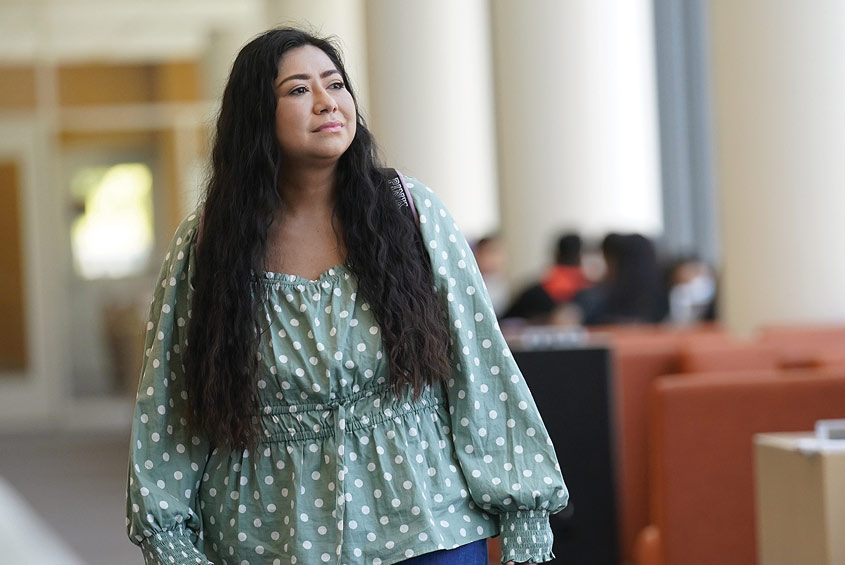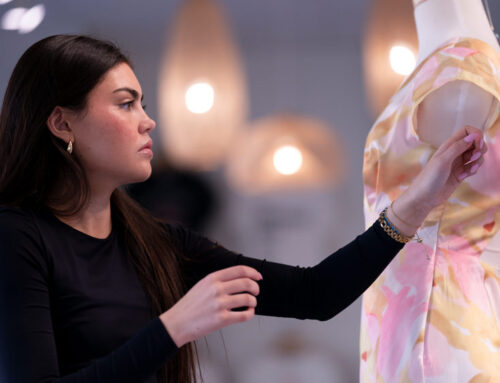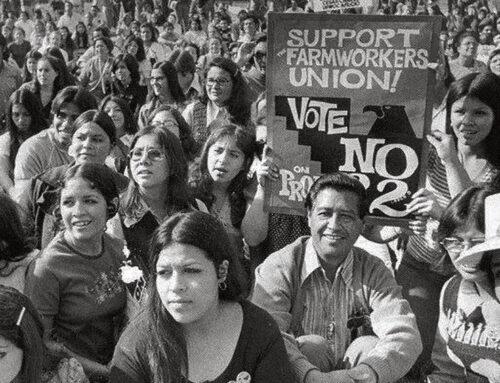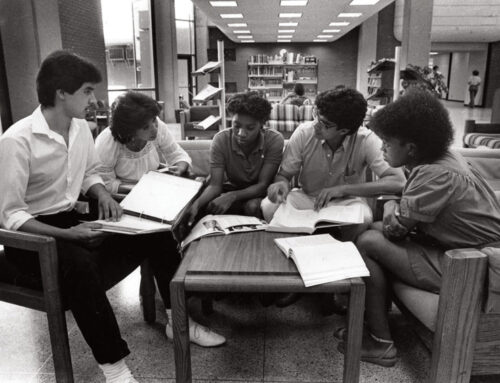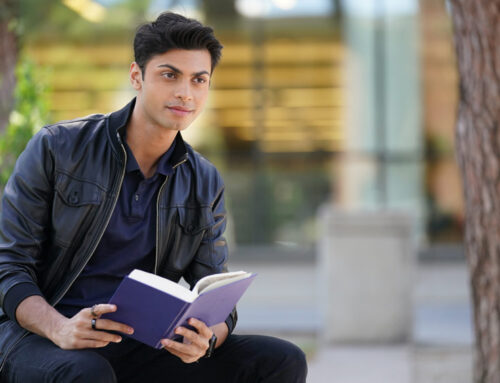Access to Achieve
Helping students with disabilities get on common ground
By BoNhia Lee
Juanita Silva knew at 7 years old she was different from her two older sisters.
She was learning at a slower pace and it took her twice as long to read, memorize passages and understand the concepts. She was tested at school by a psychologist and diagnosed with a learning disability.
Silva, now a graduate student at Fresno State studying clinical rehabilitation and mental health counseling, was in a special education program most of her life. When she transferred to Fresno State from Madera Community College in 2016, she was also diagnosed with a mild case of intellectual disability. But that didn’t stop her from moving forward with her academic and career goals.
With help from Services for Students with Disabilities at Fresno State, Silva received the services she needed to successfully earn her bachelor’s degree in psychology in 2018 and to work on her master’s degree — through the COVID-19 pandemic — so she can become a clinical therapist to advocate for students with learning disabilities. She expects to graduate in 2023.
“I’ve been able to overachieve any goals that I set for myself thanks to the accommodations that I had,” Silva says. “I’m able to be productive and able to be part of society. I have a bachelor’s, and now I’m a master’s student to become a therapist. You don’t see a lot of students with my type of disability even getting past college. I couldn’t have done that without the accommodations that I really, really need.”
The Services for Students with Disabilities center provides academic accommodations for students while strengthening partnerships with the campus community to eliminate barriers and raise disability awareness. The office serves about 800 students who self-identify as having a disability, which can range from being Deaf and hard of hearing to having a learning disability, a physical impairment or other identified disability.
“What we’re trying to do is create that environment where they are at the same level as their peers,” says director Jennie Johnson. “I think sometimes people think it’s an advantage, but it’s really putting them at that same level, giving them that same opportunity. I like to say we provide access, we don’t provide success. Students have to put in that effort. They have to put in that work in order to be successful. We just make sure that they’re given the tools they need to be able to do the work.”
Incoming students have to provide verification of disability and must apply for services before meeting with an access specialist to determine the help they need. The services offered to students vary depending on disability, but include:
- Testing accommodations such as extra time or access to enlarged print.
- Accessible materials like text-to-speech software or blue or pink paper if color helps a student focus.
- Note-taking services such as a volunteer note taker or a digital recorder to record lectures so a student can focus in the classroom.
- Transportation for those who have a temporary disability or a severe physical limitation.
- Assisted technology like a Livescribe smartpen that records while being used to write notes.
- American Sign Language interpreting or captioning.
The most requested service is for testing accommodations, which can be justified for a variety of reasons, Johnson says. Maybe someone has a learning disability or a visual impairment that makes taking a test a little harder or longer. Note taking is also much needed and seems to have grown a lot over the years, Johnson says.
Silva has received testing accommodations and note-taking services throughout her undergraduate and graduate studies at Fresno State. She gets time-and-a-half beyond the allotted testing time to take her exams, separately from her peers. She can also request someone to read to her if needed. And Silva gets help from a note taker in case the professor is speaking too fast in class and she can’t keep up with her own note taking. She stresses that she is responsible for taking her own notes, but having an extra set of hands is helpful.
Services for Students with Disabilities has eight full-time staff members and 17 hourly employees who work as interpreters and captioners. The office also employs student assistants for the front desk and to work on the production of accessible materials. The program also works with other departments across campus, including TRiO Student Support Services – Disabilities.
Silva was accepted into the TRiO program, which helps students develop the academic skills and personal development to complete a college degree. Now she is a mentor, helping other students with disabilities on the road to success.
“It feels good to be helping people out and to tell them, ‘Hey, look I’m doing it,’” Silva says. “I’m breaking the barriers that say people with learning disabilities can’t do it. If I can do it, you can do it, too.”

